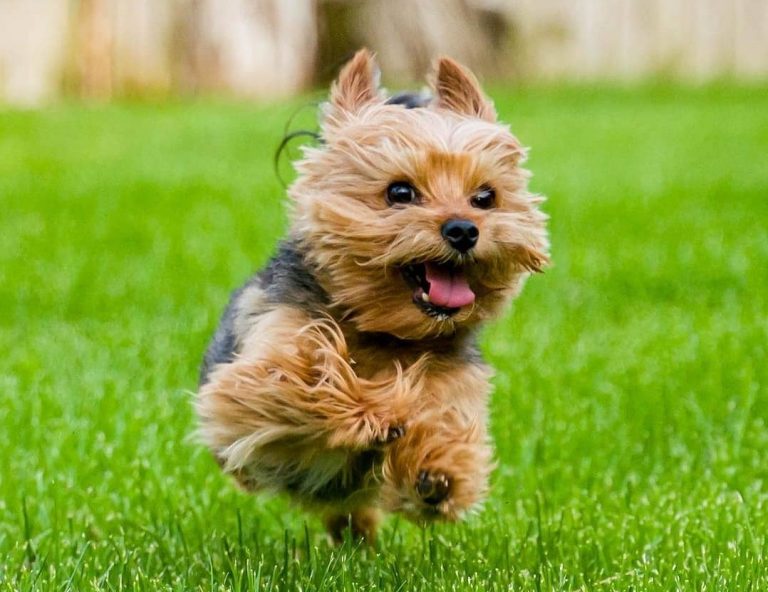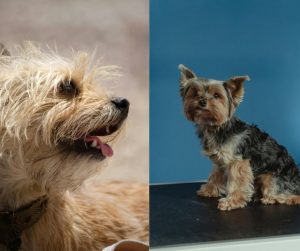When you think of Yorkies, you think of cute, affectionate, and hypoallergenic dogs. But some people will tell you, that it is not all milk and honey. Owning a Yorkie puppy might be more challenging than you think. At moments, it seems like these little angels are a wonderful addition to your family. But at times, they will drive you crazy with their quirks. So, why are Yorkies so annoying?
These small-sized dogs are loads of entertainment and fun. But if you do not understand their character, they will make you go mad. Let’s take a look at their personality traits.
History Of Yorkshire Terrier
The first thing you need to understand is the history of the breed. The Yorkshire Terrier is a relatively new breed. If you can say something like that about a dog originating in England in the 19th century. The first recorded Yorkshire Terrier was recorded in 1872. The United Kennel Club officially recognized the dog breed in 1886.
It took some time for the American Kennel Club to recognize the breed. The Yorkie was developed by crossing breeds like the Skye Terrier, the Maltese, and the Dandie Dinmont Terrier. The ultimate goal of breeders was to come up with a small dog with a silky coat that doesn’t shed.
Yet, at the same time, they wanted the puppy to retain their terrier instinct and nature. This little dog was originally bred to hunt vermin at farms. They were bred to hunt rats and be prolific hunters. Their small size allowed them to move quickly and quietly, tracking down prey on farms.
Yorkies were tenacious and fearless, and wouldn’t give up even when the odds seemed stacked against them.
Why Will They Drive You Crazy?
Now let’s talk a bit about why are Yorkies so annoying. Yorkshire terriers are adorable but can be frustrating at times as well. In most cases, they show good behavior. But there are times when their annoying behavior will make pet owners doubt their choice. Here are some reasons for that.
- They have an amazingly high energy level and can be very active throughout the day. You will hardly find a Yorkie chilling and doing nothing. As long as there is someone to play with, Yorkshire terriers will look for ways to engage you in playing
- Their terrier stubbornness is second to none. All terriers are stubborn, but it seems like the smaller the dog, the bigger the stubbornness. Yorkies, Jacks, Fox terriers, and other smaller dogs in the terrier world are more stubborn
- Despite being stubborn and independent, they can be prone to separation anxiety. Yorkies are famous for forming a strong attachment to their pet owners and are anxious and distressed when they are left alone
- Excessive barking is another issue with Yorkies. Same as with stubbornness, barking seems to go up with smaller size. These dogs are excessively noisy because of their territorial instinct and low tolerance to stimuli. They can be easily agitated by the smallest thing
- While they are affectionate and loving to their family, they rarely tolerate other animals. They are territorial toward their parents, and when there is another animal in the house, they tend to show you are theirs
- Grooming demands are high, as Yorkshire terriers are high-maintenance dogs. They need someone to brush their precious silky coat two to three times per week. That long and silky coat requires maintenance to look beautiful
- These dogs often exhibit attention-seeking behavior. They crave human companionship and may show behaviors like excessive barking, whining, or similar things to demand your attention
Small Dog Big Problem
When you look at the Yorkshire terrier, you might look at a small dog. But their size is deceptive. These smaller dogs pack a punch when it comes to their temperament. Despite their small size, they often drive their dog owner crazy. Their barking is arguably the most annoying thing.
Yorkies have a high-pitched bark that you can hear from miles away. And the worst part is, they are not afraid to use it. When people ask why are Yorkies so annoying, their bark is often at the top of the list.
These dogs will bark at the door, the mailman, bark for attention, bark to alert of strangers, bark to protect their territory, and so on.
At What Age Do They Calm Down?
It is important to train and socialize your Yorkshire terrier dog as soon as possible. That is the only to manage their behavior.
They generally mature between 2 and 3 years of age. At that time, they may become less annoying. But different dogs mature at different age. And they all go through different stages of life.
Each stage has its own set of challenges and rewards. While puppies are full of energy and can accompany you anywhere, their constant demand for attention can be exhausting. Once dogs reach adulthood, they settle into a more predictable routine and become more responsive to training.
But you have to build good habits from puppyhood. Otherwise, your adult dog will retain its puppy personality.
Should You Get One?
While many consider Yorkies to be annoying pets, there is a reason why the Yorkie is at No.13 on the latest list of AKC for most popular dog breeds. All things considered, they are affectionate animals when raised properly. With the right socialization, mental stimulation, positive reinforcement, and obedience training, these dogs are outstanding companions. Here are some reasons why you should want one in your life.
- They bond well with their owner, making training a bit easier
- Naturally brave and fearless, they are great alert dogs
- Because of their size, they can easily fit into your apartment lifestyle. A good walk will be enough to give them the exercise they need
- They are hypoallergenic and shed minimally, making them suitable for people with allergies
- They exhibit bold and confident demeanor and carry themselves with pride
- Affectionate tiny dog that will bond with its family
- Extremely intelligent quick learners, they pick up on commands easily with proper training
- While they do have a big dog in a small body syndrome and attitude, they do socialize well with people and other dogs. But early socialization is key to raising a friendly Yorkie
- They can adapt to different living situations, including apartments. This versatile breed can thrive in different environments










